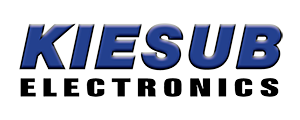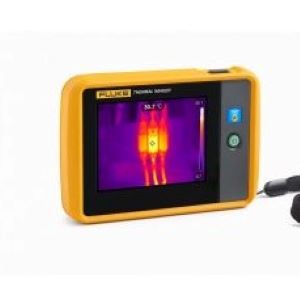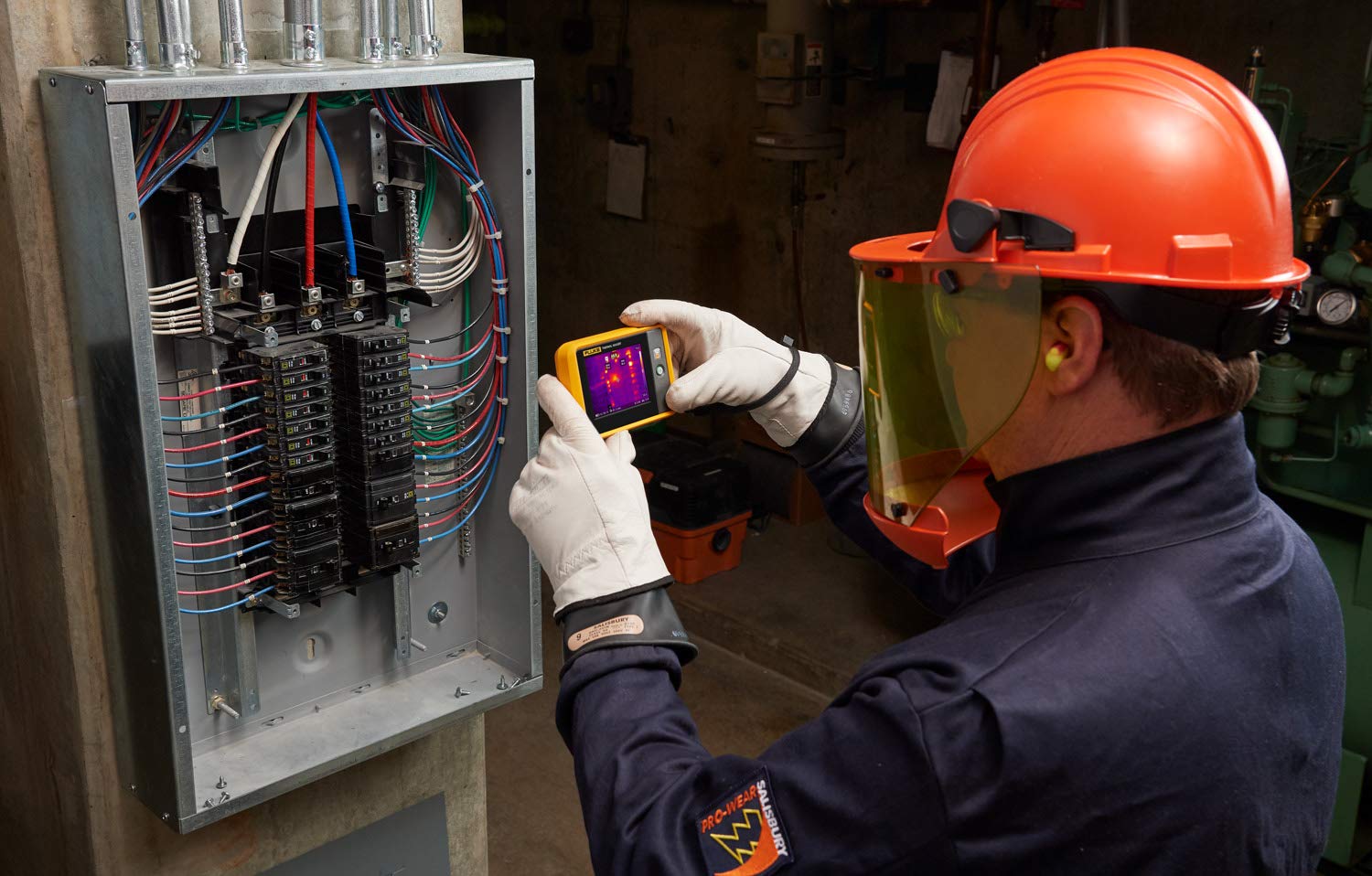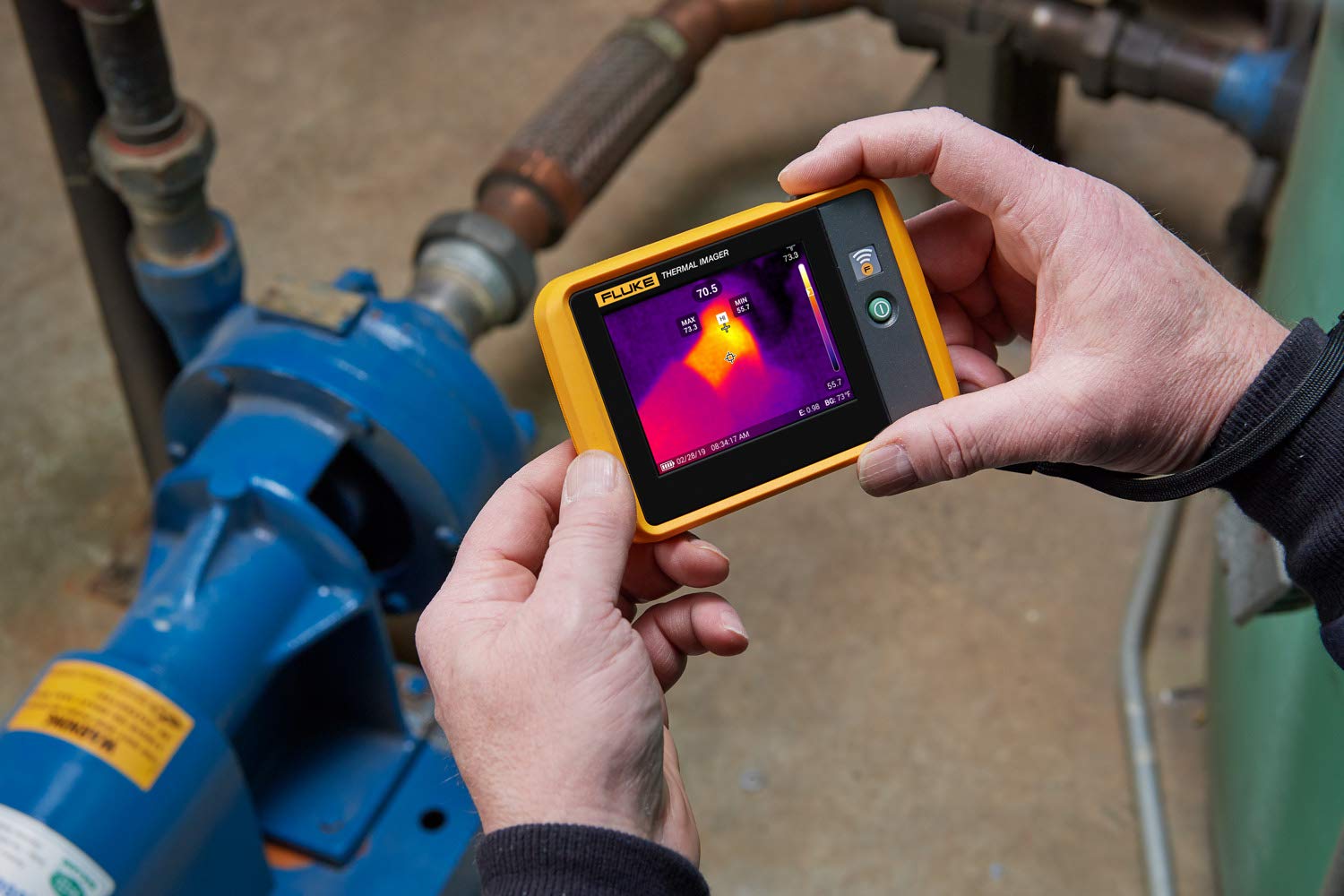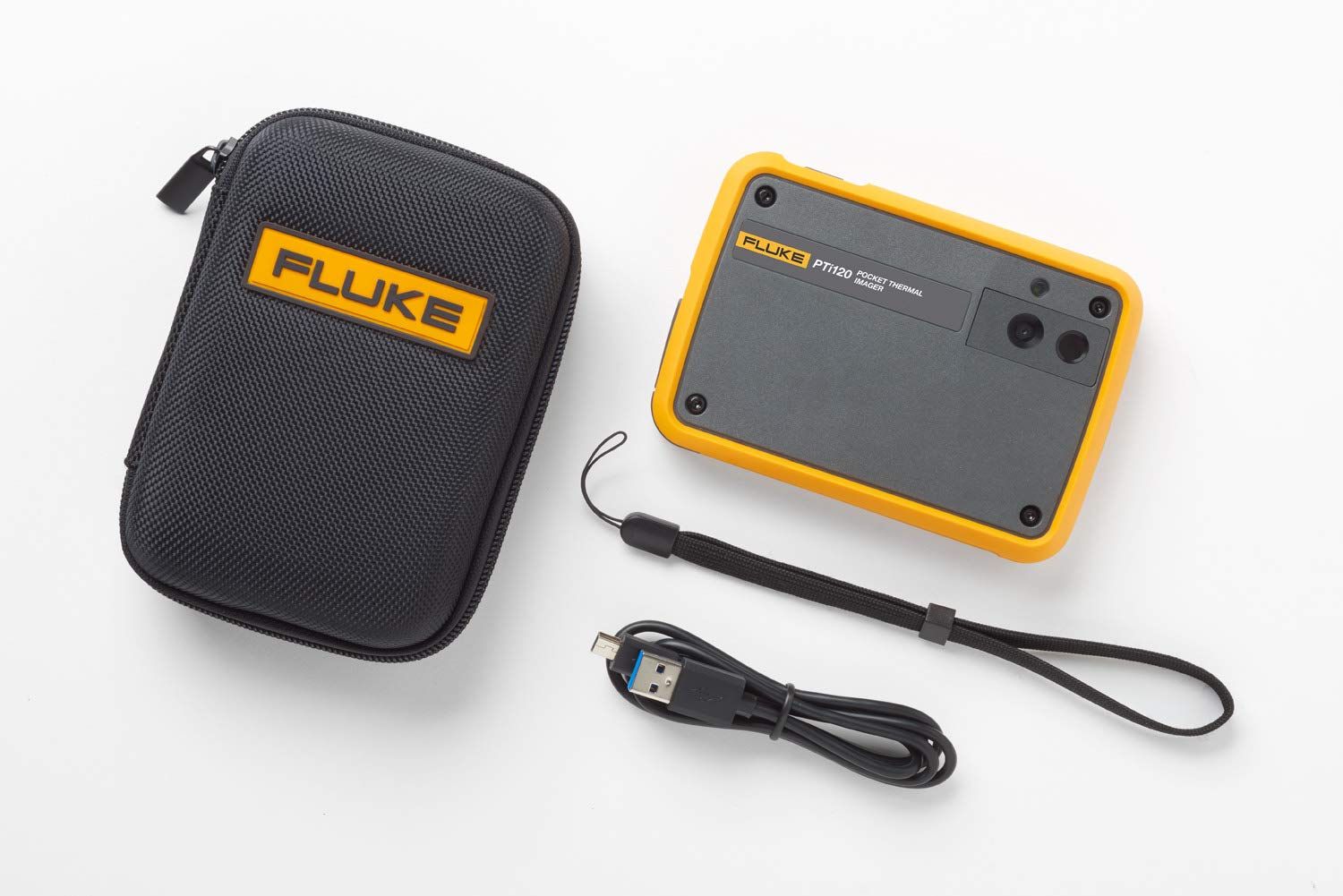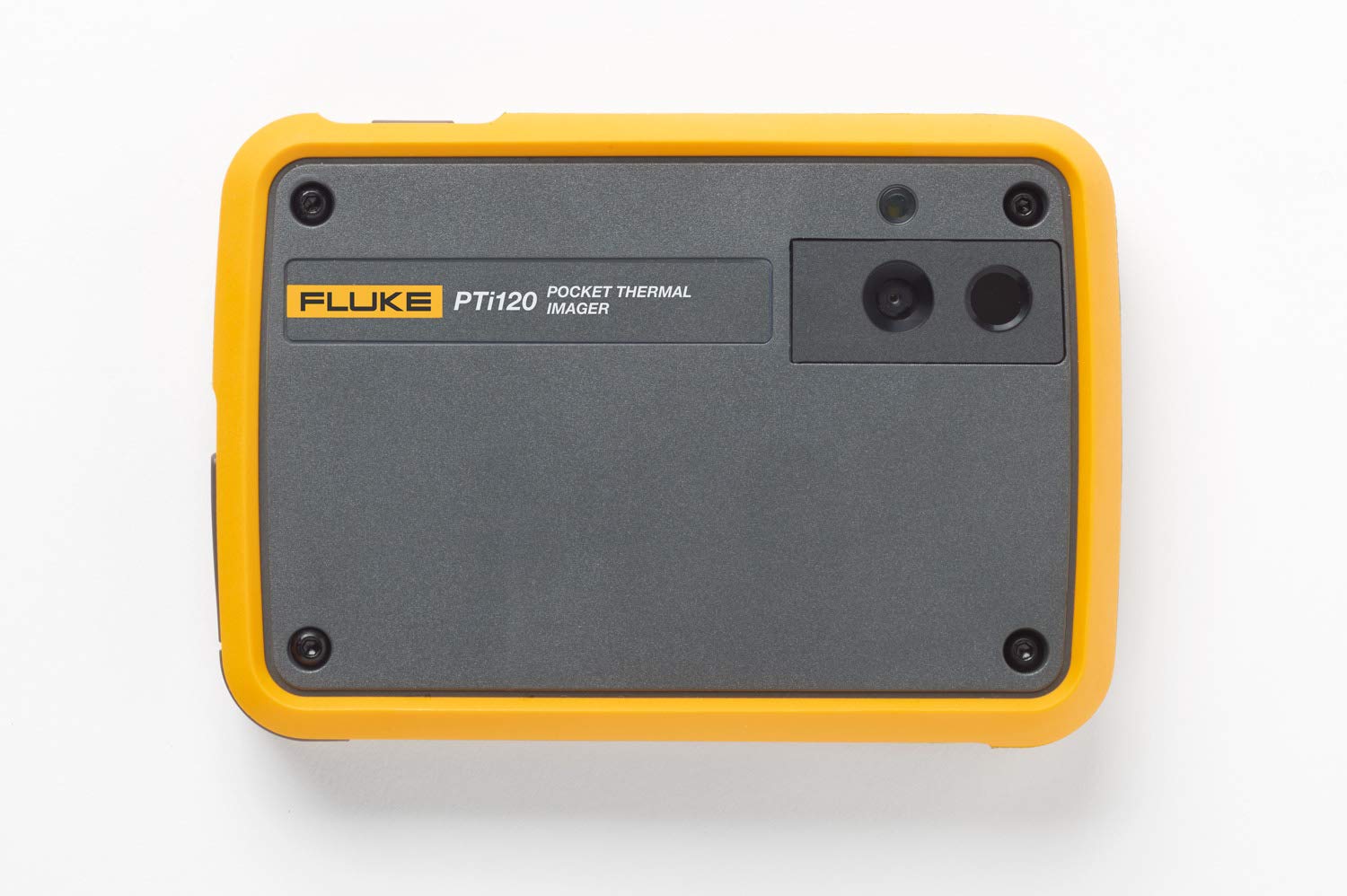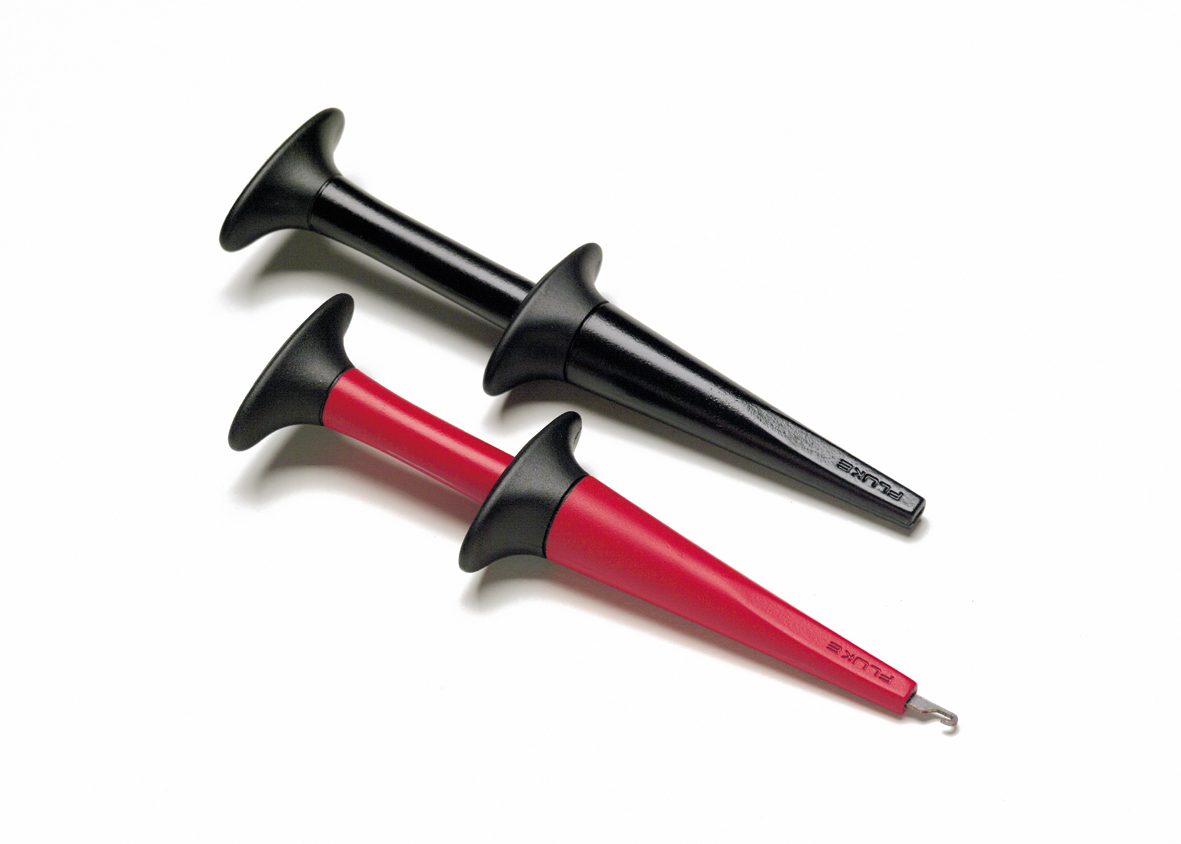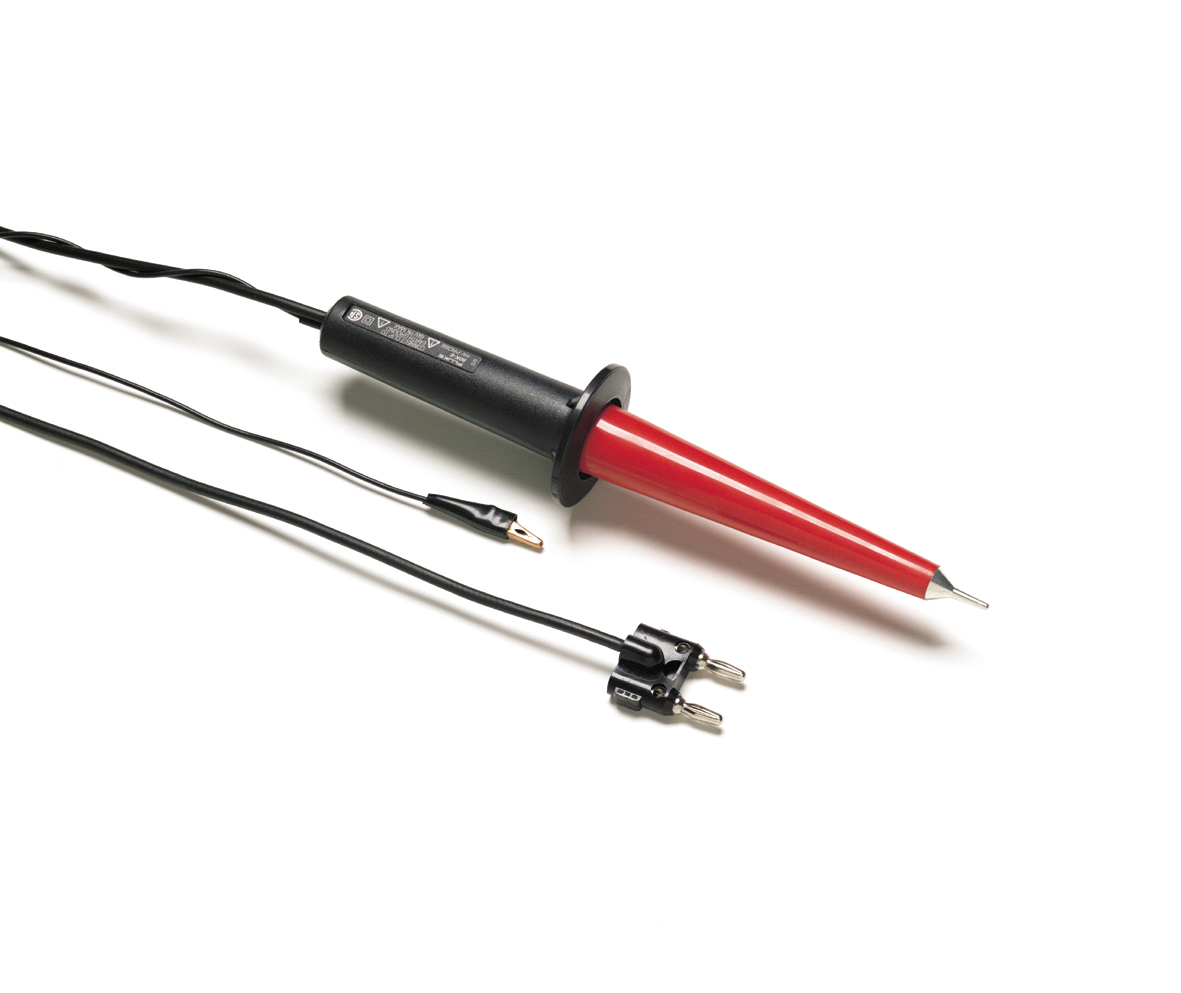Product Description
Fluke PTI120-9HZ Pocket Thermal Imager, 120 x 90, 9 Hz
FREE SHIPPING!
Rugged and weatherproof, this thermal imager provides easy troubleshooting and quickly scans the temperature of electrical equipment, machinery, and other assets. With an infrared resolution of 120 x 90, WI-FI connectivity, and a temperature range of -4 to 752°F (-20 to 400°C), this thermal imager can also survive a one-meter drop.
- Continuous touchscreen IR-Fusion™, slide your finger across the screen to adjust the setting
- Automatically organize and file thermal images with Fluke Connect™ Asset Tagging
- Fully radiometric thermal imager with 120 x 90 infrared resolution (10,800 pixels)
- 3.5″ (88 mm) LCD touchscreen display for easy troubleshooting
- Can withstand drop up to 1 meter
- Water and dust resistant IP54 enclosure rating
- -4 to 752°F (-20 to 400°C) temperature measurement range
Rugged, portable camera for industrial inspection
- Small enough to carry every day without worry
- Stands up to dirt and water
- Quick scans of electrical equipment, machinery and other assets
- Can survive a 1-meter drop
IR-Fusion
- The 3.5″ (88 mm) LCD touchscreen offers IR-Fusion to blend a visible light image with an infrared image to more easily locate problems
- Adjust the setting with a swipe of your finger
Fluke Connect
- Eliminate hours at the computer organizing your thermal images, let Asset Tagging do all that work for you
- Just scan a QR code on your asset, capture your thermal images and they are automatically sorted
- No more dragging and dropping or renaming files in the office
- Start spending your time analyzing your images and creating reports instead of sorting your files one at a time
Applications
- Electrical inspections
- HVAC/R inspections
- Mechanical
- Residential home inspections
- Light commercial maintenance
- Building diagnostics – building envelope and commercial/industrial facilities
The importance of image quality in thermography
When conducting infrared inspections, high-quality images that allow for better analysis, presentation, and professionalism are essential.
With a sharply focused image, there is a distinct contrast between areas of varying thermal energy on the surface being inspected. This allows the individual detector elements (also known as pixels) to clearly report the intensity of the energy being focused on them.
When the focus is poor, the incoming energy isn’t as concentrated on individual detectors, and their response is skewed. This can lead to temperature measurements that are significantly off, resulting in expensive downtime and possible safety hazards.
Thermal imagers are made with 100% diamond-turned germanium lenses covered with a specialty coating, providing premium quality images.




LaserSharp Auto Focus allows you to select and focus on a specific target
Easily choose and focus on your target
LaserSharp™ Auto Focus uses a built-in laser distance meter that provides both speed and precision. The laser-driven target detection pinpoints the target while the camera focuses to capture a precise, high-quality image. With LaserSharp Auto Focus, you can:
- Easily capture high-quality, focused images of your desired target with the push of a button
- Take infrared images through common obstacles like chain link fences
- Avoid skewed temperature measurements by precisely choosing your target
- Perform the same inspections multiple times as a part of your preventive maintenance program – the built-in laser distance meter calculates and displays how far you are from your target, making repeatability much easier
Choose multiple targets at different distances
MultiSharp™ Focus takes multiple images from different focal distances and combines them into one clear image. With a simple point and shoot, you can go from being completely out of focus, to complete focus, throughout the field of view. With MultiSharp:
- Reduce the need to take individual images of targets that are in the camera’s field of view – focus on one target, and all objects that are in the camera’s field of view will be in focus
- Cut downtime spent taking multiple images to increase productivity
- Capture quality, in-focus images, even under direct sunlight


1.Middleground in focus

2.Foreground in focus

3.Background in focus
Shoot from a distance
Infrared inspections can take you into multiple types of environments with many types of equipment. Interchangeable lenses that require no calibration give you the versatility and the image quality needed to conduct inspections in almost any environment.
- Reduce the need to enter the danger zone with a 2x telephoto lens
- Identify potential issues as small and distant as a failed splice on a high electrical line from the ground with a 4x telephoto lens
- Save time with roofing and industrial building inspections by viewing a large area at one time with a wide-angle lens

High voltage power pole, captured with a TiX560 camera and standard lens

The same power pole captured from the same distance, but with a 2x telephoto lens

The same power pole captured from the same distance, but with a 4x telephoto lens
Easily manage and analyze your data
Whether you are troubleshooting or conducting maintenance inspections, having easy access to more information faster is always a big benefit.



Document information on the equipment you’re inspecting
With IR PhotoNotes™, voice or text annotation, you can easily document critical information about each piece of equipment and its location. Each “note” attaches to the image, so you never have to search or match up notes to images.
- Document critical information with your infrared image
- Capture surrounding details like wind conditions and time of day
- Identify asset location
 |
 |
|
Image Info |
|
| IR Sensor Size | 320 x 240 |
| Distance to Target | 0.69m |
|
Main Image Markers |
|
| Name | Temperature |
| Centerpoint | 29.1°C |
Capture digital and infrared images at once
IR Fusion™ technology combines visible light and an infrared image into one, giving you better clarity.
- Get exact location details in picture-in-picture mode, which provides the center part of the display in IR and the remainder of the image in visible light
- See more details when you adjust the level of infrared and visible light blending in AutoBlend™ mode
- Isolate problem areas with user-defined temperature ranges with IR color alarms

IR Fusion picture-in-picture mode: Ironbow palette

IR Fusion picture-in-picture mode: AutoBlend

IR Fusion color alarm
ROI and thermal imaging
Seven benefits of on-site infrared inspections
- Reduce downtime
Inspections can be done while equipment is running – no lost production time. - Protect lives while doing more
The non-contact nature of infrared inspections allows technicians to scan large areas quickly, from a safer distance away. That means technicians can inspect more equipment faster. - Improve production efficiency
Subtle problems are found and addressed before they have a major impact on production. - Document before and after
Validate post-maintenance work and capture the results for future review. - Reduce capital expenses
Finding and repairing problems at an early stage can improve the life expectancy of equipment, as a result extending replacement intervals. - Increase productivity
Quickly scan a large area to find air leaks, insulation gaps, moisture and overheated electrical components to complete more work in less time. - Identify work in easy-to-understand terms
See exactly what the problem is on the camera, eliminating guesswork and making it easier for everyone to see what repairs needs to be done.

Review thermal images side by side, making it easy to compare today’s reading with the baseline or other historical images.
Using Fluke Thermal Imaging to Troubleshoot Motors & Drives
Infrared cameras, also called thermal imagers, are useful for troubleshooting motor problems as well as for monitoring motor condition for preventative maintenance in power generation, manufacturing and commercial plants. Thermal images of motors reveal their operating condition as indicated by surface temperature. Such condition monitoring is important as a way to avert many unexpected motor malfunctions in systems that are critical to manufacturing. The onset of motor failures can often be detected by a variety of techniques, including vibration, ultrasound and thermal imaging.
In this article, we cover why use thermal imaging and what to scan, as well as some notes on what to look for, including shaft misalignment.

